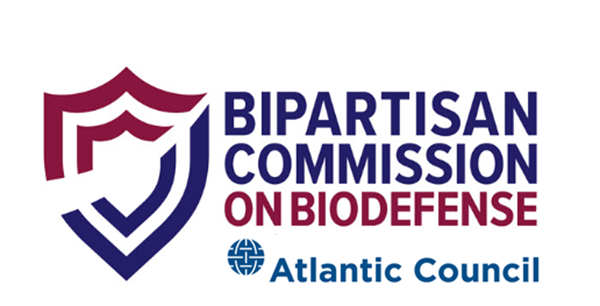Blue Ribbon Study Panel on Biodefense Calls for Strategic Budgeting Tied to New National Biodefense Strategy

FOR IMMEDIATE RELEASE
Contact: Steve Aaron, SRA Communications, (717) 554-8614, steve@SRACommunications.com
BLUE RIBBON STUDY PANEL ON BIODEFENSE CALLS FOR STRATEGIC BUDGETING TIED TO NEW NATIONAL BIODEFENSE STRATEGY
‘Budget Reform for Biodefense’ Provides Specific Recommendations for OMB, Congress to Improve Return on Investment of Biodefense Dollars
WASHINGTON, D.C. (February 26, 2018) – As tensions with North Korea rise, and as the nation endures one of the worst seasonal influenza outbreaks in nearly a decade, the Blue Ribbon Study Panel on Biodefense has issued a warning to decision-makers that now is the time commit to funding biodefense like the national security imperative that it is.
“This year, we mark the 100th anniversary of the 1918 influenza pandemic – an outbreak that took at least 50 million lives, perhaps as many as 100 million,” said Joe Lieberman, former Chairman of the Senate Homeland Security and Governmental Affairs Committee, and current Co-Chair of the Blue Ribbon Study Panel on Biodefense. “We would do well to remind ourselves that we are really just as vulnerable now as we were then. In addition to the enormous potential toll on human health that intentional or natural outbreaks can inflict, the cost of the relentless rise of outbreaks is also entirely unsustainable based on current funding approaches. Emergency appropriations reach into the billions in direct outlays to the U.S. government. Economic impacts of a catastrophic outbreak could reach into the trillions.”
The report finds that the ad hoc and stovepiped approach to budgeting across multiple federal agencies is preventing strategic, long-term, and cohesive progress toward bolstering America’s vulnerable biodefense posture. “We are asking the Administration to undertake some relatively simple measures that could dramatically improve the public health security of the American people,” said Tom Ridge, former Secretary of Homeland Security and Co-Chair of the Study Panel. “We’d like the White House to tell Congress what the biodefense spending request is, and how it meets the goals of the National Biodefense Strategy. And we are asking Congress to rally around this mission space in a way that supersedes committee lines.”
The report calls for the Office of Management and Budget to annually submit an integrated budget request to Congress that outlines federal-wide biodefense spending, and how it is tied to mission objectives. It also asks congressional Leadership to appoint a temporary bipartisan and bicameral congressional Biodefense Working Group to determine the structures and processes that would enable streamlined biodefense oversight, which is lacking in large part due to fractured jurisdiction and to appropriations subcommittee siloes. It also calls on Congress to sustain funding for the Global Health Security Agenda, establish a $2 billion public health emergency fund, and reinstate the Project BioShield advance appropriation.
To read the full report, click here.
Editor’s Note: A media conference call to discuss the new biodefense budget report will be held at 11am Wednesday, Feb. 28. If you are a credentialed journalist interested in speaking with Co-Chair Joe Lieberman and Panel Member Ken Wainstein, former Homeland Security Advisor to President George W. Bush, please email steve@SRACommunications.com to register. Dial-in information will be provided at that time.
About the Blue Ribbon Study Panel on Biodefense
The Blue Ribbon Study Panel on Biodefense was established in 2014 to conduct a comprehensive assessment of the state of U.S. biodefense efforts, and to issue recommendations to foster change. The Panel’s 2015 report, A National Blueprint for Biodefense: Leadership and Major Reform Needed to Optimize Efforts, identified capability gaps and recommended changes to U.S. policy and law to strengthen national biodefense while optimizing resource investments. The Panel continues to assess biodefense challenges and to urge reform. Former Senator Joe Lieberman and former Governor Tom Ridge co-chair the Panel, and are joined by former Secretary of Health and Human Services Donna Shalala, former Senate Majority Leader Tom Daschle, former Representative Jim Greenwood, and former Homeland Security Advisor Ken Wainstein. Hudson Institute is the Panel’s fiscal sponsor.
